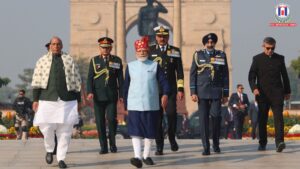
New Delhi : Jawaharlal Nehru University (JNU), one of India’s premier academic institutions, has announced the suspension of its Memorandum of Understanding (MoU) with Inonu University in Turkey, citing national security considerations. The decision was made public through an official social media post by JNU on Wednesday.
The university stated that after a thorough internal review, it was decided to put the agreement on hold in the interest of safeguarding national security. While specific concerns were not detailed in the announcement, officials noted that the move aligns with broader institutional and governmental efforts to ensure that international academic collaborations do not compromise the country’s strategic interests.
The MoU between JNU and Inonu University was signed to promote academic cooperation between the two institutions. It included provisions for student and faculty exchange programs, joint research projects, and sharing of academic resources. However, the agreement had not yet progressed into full implementation, according to university sources.
“In view of national security considerations, the university has suspended the MoU with Inonu University of Turkey. The safety and strategic interests of the nation remain our utmost priority,” read the statement shared by JNU.
While the university did not elaborate on the exact nature of the security concerns, sources familiar with the development suggested that intelligence inputs and policy advisories from government agencies may have influenced the decision. There has been growing scrutiny in recent years regarding collaborations with foreign institutions, especially in regions where diplomatic or strategic tensions exist.
Turkey has, on several occasions in the past, made critical remarks on issues related to India’s internal matters, including Jammu and Kashmir. Analysts believe that such diplomatic strains may also have played a role in influencing academic policy shifts.
The suspension of this MoU reflects a broader trend where Indian institutions are reassessing international partnerships through the lens of national interest. In recent years, universities and research organizations have been encouraged to maintain caution while entering agreements with foreign entities, particularly in sensitive areas such as technology, defense-related research, and strategic studies.



















No Comments: